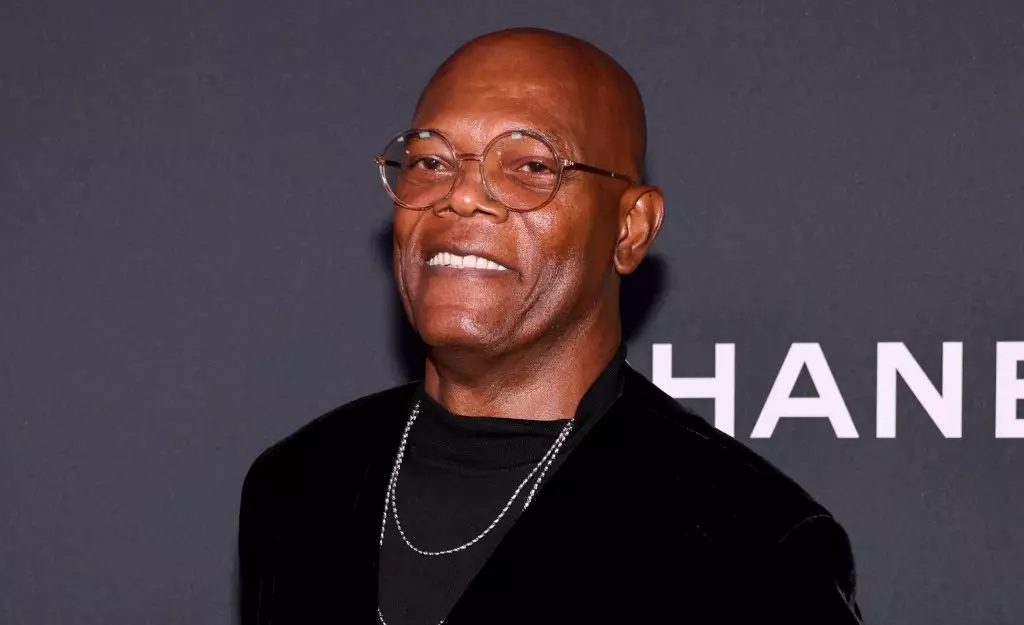In the competitive realm of Hollywood, the Academy Awards often loom large, adorning many actors’ careers with a semblance of validation. However, Samuel L. Jackson, a prominent figure in the industry with a career spanning decades, brings a refreshing, brutally honest perspective to the conversation. During a recent interview promoting Netflix’s adaptation of August Wilson’s acclaimed play *The Piano Lesson*, Jackson elucidated a critical viewpoint that cuts through the façade of humility typically associated with Oscar nominations. He humorously admonished the prevailing sentiment among nominees, insisting that while being nominated has its merits, ultimately, it pales in comparison to the victory of winning.
Jackson’s remarks, which elicited laughter from his co-star Michael Potts and the interviewer, highlight an inherent truth about the pursuit of excellence within the film industry. He stated, “Folks will go, ‘Well, it’s just an honor to be nominated.’ No, it ain’t. It’s an honor to win.” This candid admission resonates with many seasoned professionals who understand that in an industry driven by recognition and accolades, mere nominations can often fade into obscurity. The transient nature of public memory regarding nominees and winners is both humorous and poignant, a reflection of the broader cultural moment that tends to forget as quickly as it lauds.
Jackson’s relationship with the Oscars has evolved considerably over time. While he was honored with an honorary Oscar by Denzel Washington at the 2022 Governors Awards, he also shed light on the underlying challenges of the awards circuit. “Generally, it’s a contest you didn’t volunteer to be in,” he remarked, encapsulating the essence of an uninvited competition that many artists find themselves entangled in. The implication here is not only a critique of the awards system but also a commentary on how such recognitions are often externally imposed rather than organically sought.
This stance shifts the focus from external validation to personal satisfaction in one’s craft. Jackson has previously articulated that he has chosen to prioritize happiness over accolades, stating, “I was never going to let the Oscars be a measure of my success or failure as an actor.” This meaningful perspective serves as a reminder that artistry is not confined by industry metrics but rather defined by the joy and fulfillment one finds in their work.
*The Piano Lesson*, directed by Malcolm Washington, serves as a poignant exploration of familial legacy and the complexities of the Black experience, drawing from August Wilson’s Pulitzer Prize-winning work. The narrative unfolds through the lives of siblings Boy Willie and Berniece, who must confront their differing viewpoints regarding the sale of an heirloom piano that symbolizes their family’s history. This film not only showcases Jackson’s versatility as an actor but also highlights his commitment to projects that delve into significant cultural themes, far beyond the superficial allure of awards.
While Jackson finds joy in roles such as Nick Fury or Mace Windu, he clearly expresses a dedication to storytelling that matters. His participation in *The Piano Lesson* signals his strong alignment with narratives that address historical and cultural truths, pushing the needle further than mere entertainment. Additionally, the increasing trend of adapting Wilson’s works for contemporary audiences underscores the enduring relevance of his messages—reminders of heritage and struggle that resonate today.
In an industry often perceived as driven by superficial accolades, Jackson’s insights encourage a broader reflection on what success truly signifies in the arts. By emphasizing personal fulfillment and the inherent value of storytelling over the pursuit of trophies, he articulates a vision that can inspire both current and aspiring artists. His perspective challenges the traditional narrative of success, advocating for a redefined framework where passion and creativity take precedence.
In a landscape riddled with comparisons and competitiveness, Jackson’s voice serves as a beacon advocating for authenticity and intrinsic motivation. His words leave us with an essential takeaway: the journey of an artist should align with personal happiness rather than the elusive and often forgettable shimmer of an Oscar nod. In a world where so much is at stake, perhaps the ultimate honor lies not in being recognized but rather in being genuinely fulfilled by one’s creative endeavors.


Leave a Reply